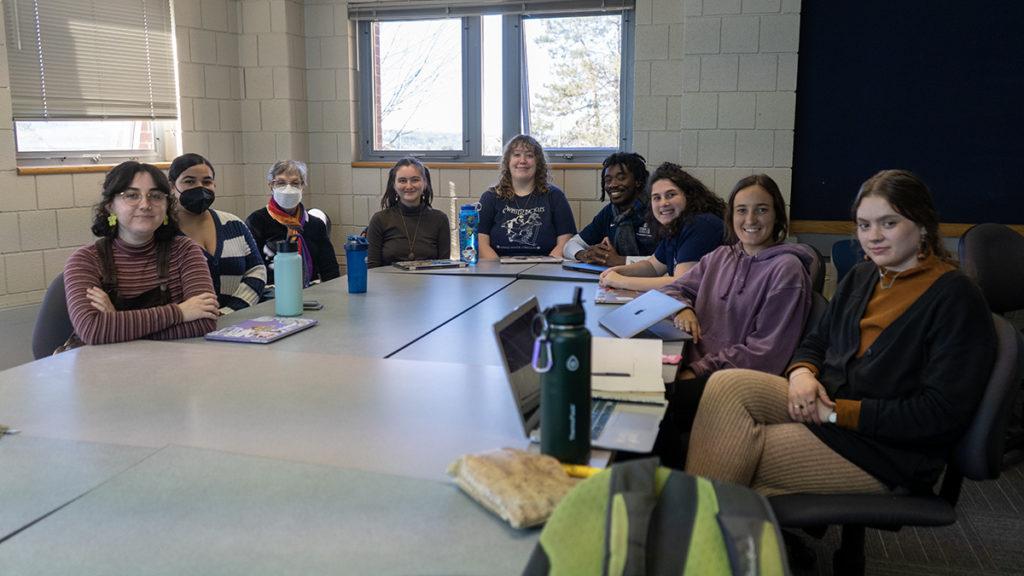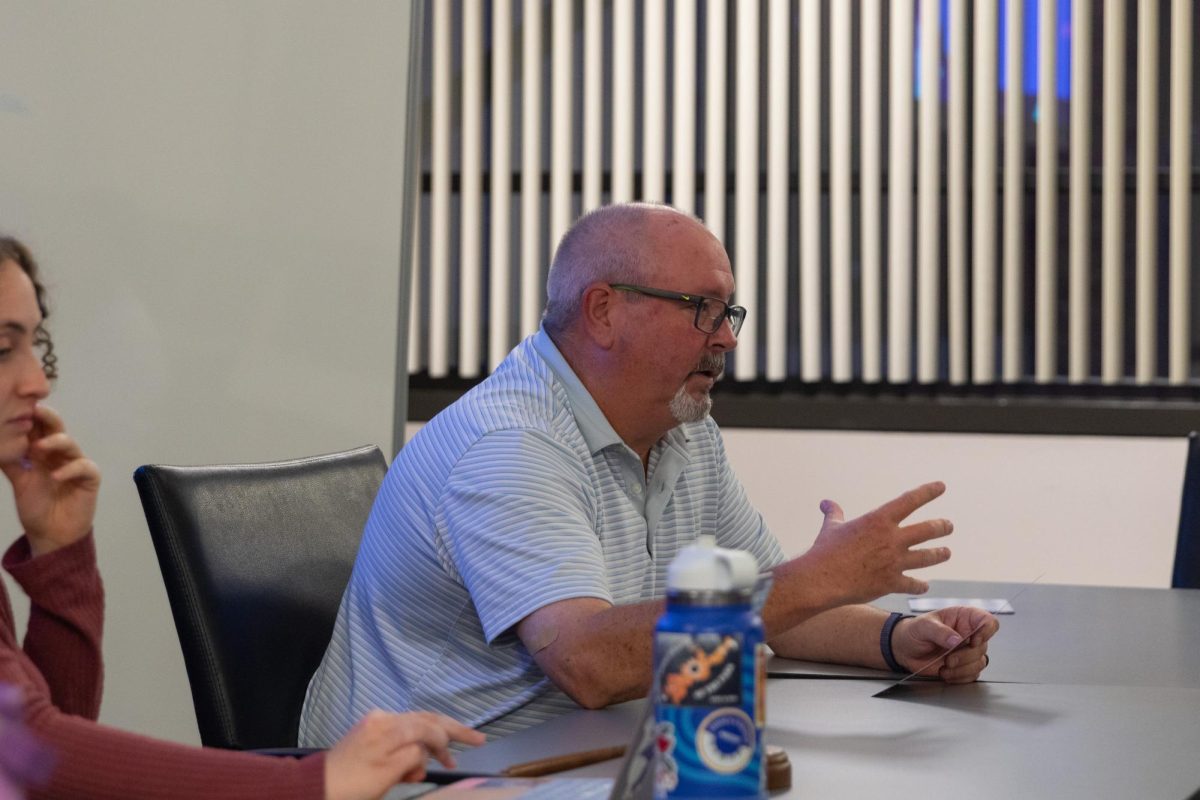Ithaca College is home to undergraduate and graduate programs that require students to participate in research with professors as part of their curriculums.
Participants in studies are recruited through a multitude of platforms. Occupational therapy and psychology students believe required research is necessary and rewarding in their collegiate experience. In the Department of Psychology, the psychology major requires students to participate in three semesters of research. Students pick one of the six teams led by psychology faculty each year to take part in and spend three semesters working with that professor on their research. There is a wide range of topics, including gender biases in children’s activity books and whether college students think the COVID-19 pandemic is over.
Leigh Ann Vaughn, professor in the Department of Psychology, has been leading research teams at the college since 2003.
“It is so integrated with everything that I do teaching-wise and research-wise and just with my entire professional identity that — as I’ve learned how to do better by my students and my research team — I’ve become a better teacher in all of my other classes and a better researcher,” Vaughn said.
Vaughn’s current research uses psychology students as participants. Students on the research team use an internal online program for students called Sona to extend the outreach to psychology students. Students on research teams also speak in psychology classes about research participation opportunities.
Junior psychology major Ashley Graichen said she has taken part in research as a participant almost every semester. One of the most recent ones she participated in was about stress and college students.
“They’re fun to do, but I also know that it’s going toward people’s research, so now I’m like, ‘Oh, I’ve got to do that,’” Graichen said.
Graichen said that in most of her psychology classes, she receives extra credit for participating in other students’ research studies. She is also part of a research team that works with elementary school children, so she said that gathering participants for her team’s research is different because of a predetermined relationship with local elementary schools in the general Ithaca area.
Cyndy Scheibe, Dana professor in the Department of Psychology, is also leading a research team that uses elementary-age children as its participants. She said this fall was the first time since before the COVID-19 pandemic started that her team will get to go into the schools again and work with the children in person.
“It was harder, I think, for research teams that were using college students,” Scheibe said. “At least for us, the content analysis research was something we could still do.”
The college only offers an undergraduate psychology program, so all psychology research on campus is done and presented at conferences around the country by undergraduate students. Most psychology graduate programs in the nation require research as part of the program rather than undergraduate programs. Cornell University’s undergraduate psychology program encourages research but does not require it.
“For me, I would match my undergraduates up against graduates any day,” Scheibe said. “It’s really a strength of the psychology major and the training the students get but also the three-semester research team experience.”
The psychology major is not the only program that requires research in its coursework. The combined bachelor’s and doctorate program in occupational therapy requires three semesters of research, one semester during senior year of undergraduate school and two semesters during graduate school.
Graduate student occupational therapy (OT) major Kaitlyn Katz is working on her research study this semester. OT majors do not conduct research in their program until their senior year before entering their graduate years. There are typically six or seven research studies happening at once that seniors can choose from.
“Our study is about non-cisgender individuals and their occupations that bring them gender euphoria,” Katz said. “We were a little apprehensive and nervous about getting enough participants, but within the first 24 hours, I had all six [participants].”
Katz said since her study was qualitative and more narrative-based, the smaller number of participants makes it easier to come up with themes based on what participants tell the researchers. Her research team used Intercom to recruit participants and offered a $25 gift card to those who participated. Funding for compensation and research costs comes from grants that students receive.
“I would say it’s pretty common [for participants] to get compensated or get put into a raffle to be compensated,” Katz said. “We want to thank them for contributing to our study because they are quite literally our research.”
Since Katz’s study is personal and uses anecdotal information to determine conclusions, she said a large number of participants is not necessary.
“There is no one right number of participants for any given study,” Vaughn said. “It depends on how big an effect you are looking for and expect to find.”
Vaughn said there is software online that helps students and researchers alike determine what sample size is right for their study. Research is admired and encouraged in graduate school applications, so required research in undergraduate programs helps students to have that experience and background.
“It is terrific for us to even be on a campus where there is so much happening around research,” Scheibe said. “It’s really exciting to see the work that has been done and to see how committed students are.”








